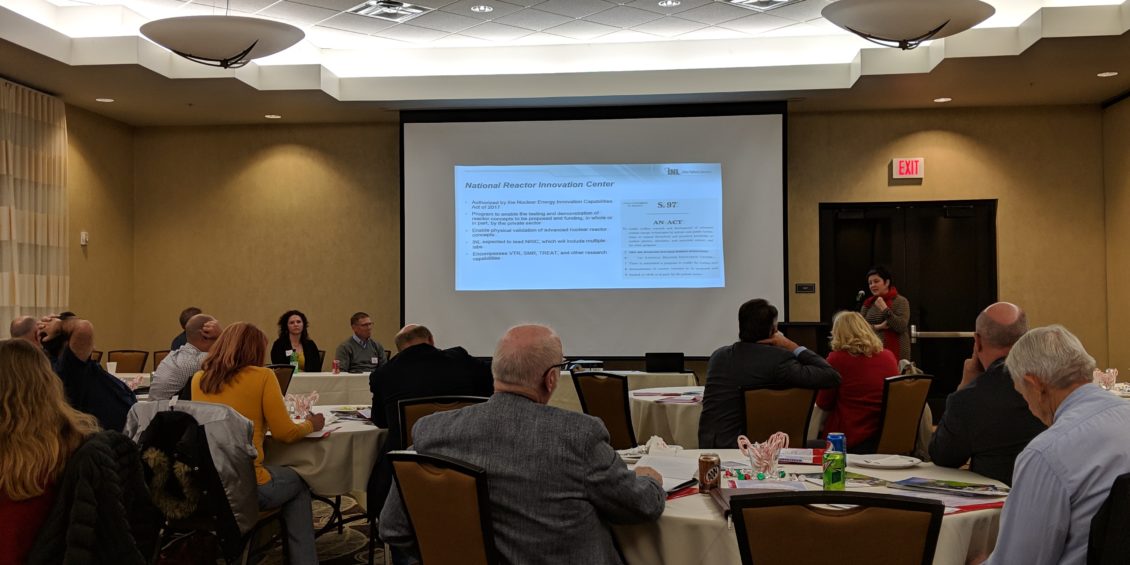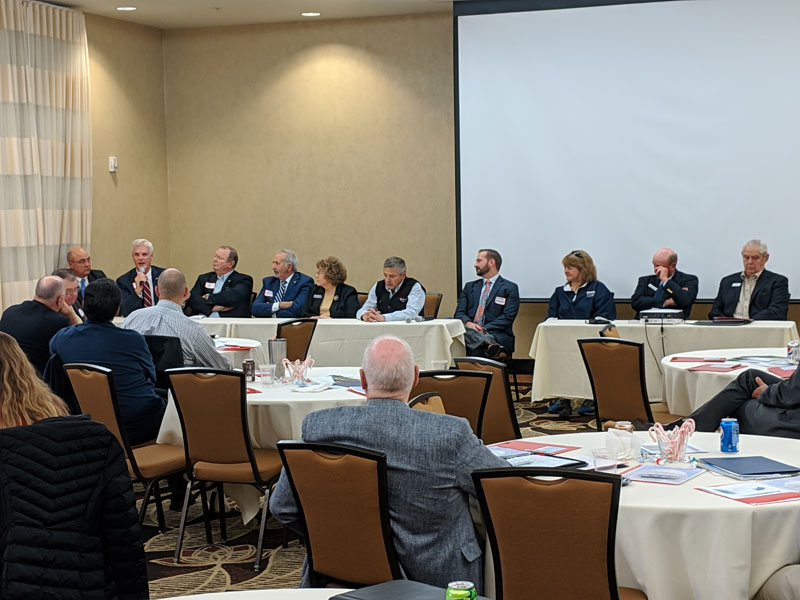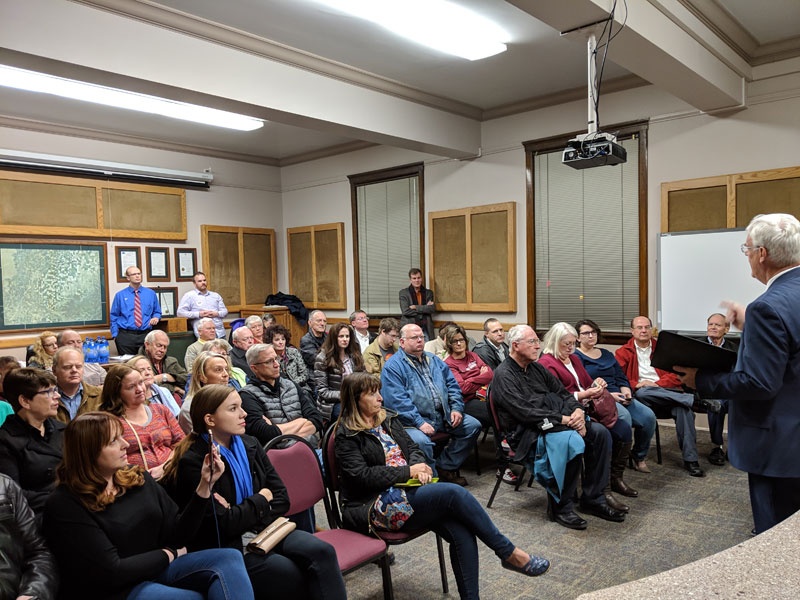
How many of you are familiar with phrases like “conjunctive management,” “water call,” and “adjudication?” Unless you’re heavily involved in Idaho’s water policy, they’re probably new terms for you, and the Eastern Idaho Water Rights Coalition was kind enough to host a “Water 101” for new legislators Tuesday morning.
I have a bit of a leg up over some of my fellow freshman with my ag background, but water matters to more than just farmers in Idaho. Cities and other businesses depend on a reliable source of water to support our current communities and plan for future development. Attorneys Jerry Rigby and Rob Harris, two of Idaho’s leading water law experts, took us through some of the current issues.
In comparison to other Western states, Idaho is miles ahead in our water management practices.
Meeting with Local Officials

(LtoR): Sen.-Elect Burtenshaw, Senate President Pro-Tem Hill, Sen. Bair, Sen. Mortimer, Rep. Smith, Sen. Guthrie, Rep. Zollinger, Rep. Ehardt, Sen. Harris, Sen. Nye
Following Water 101, it was time for the Eastern Idaho Legislative Forum. Mayors and officials up and down the valley came together to share what’s happening in their towns and cities. For example, they shared the results of projects that happened because of the surplus eliminator program.
- St. Anthony re-did its Main Street and walkways near schools
- Driggs added new walking routes, creating safer access to local schools
- Idaho Falls used the funds to pave previously unpaved roads
None of these projects were likely to happen without this program. The surplus eliminator is just one example of what happens when we listen to local officials and develop strong working relationships.
Beyond these projects, it was exciting to hear about the incredible growth at the College of Eastern Idaho and the Idaho National Laboratory. We have some fantastic things happening in our region, and I want to make sure we don’t do anything to mess up those efforts.
Local Control Matters in Idaho
The final meeting of the day was a briefing from the Department of Environmental Quality (DEQ). Through DEQ, Idaho can take primacy over many of the federal environmental programs. It means that when we’re dealing with a good chunk of land, water, and air issues, we’re dealing with folks who live here and not in Seattle or Washington, D.C. Working with local officials on these programs whenever possible is an improvement over working with someone who only flies in for the day.
From 2018-2021, DEQ will implement the process for Idaho to regulate the National Pollutant Discharge Elimination System (NPDES). Idaho was one of the few remaining states to assert primacy over this program, and long-term, it will benefit our state.
Meeting with the People We Represent
After these public briefings, Senator Hill, Rep.-Elect Ricks, and I hosted a public meeting in Rexburg. I worried we might be the ones who attended, but we had over 50 folks in the room. I thought that it was a fantastic event with a lot of positive discussion. We plan to host more town halls during the session, and when we get a schedule set, I’ll make sure to post the details so you can attend.

Sen. Hill at District 34 Town Hall in Rexburg
Even after a long day, I’m still thrilled to be serving. I see so much potential in our state, and I’m going to do everything I can to support you and local leaders to make amazing things happen.
Next week I head to Boise for new legislator training and the organizing session. I’ll share as much of the trip as I can because I think it’s helpful for you to get a sense of what happens in Boise.